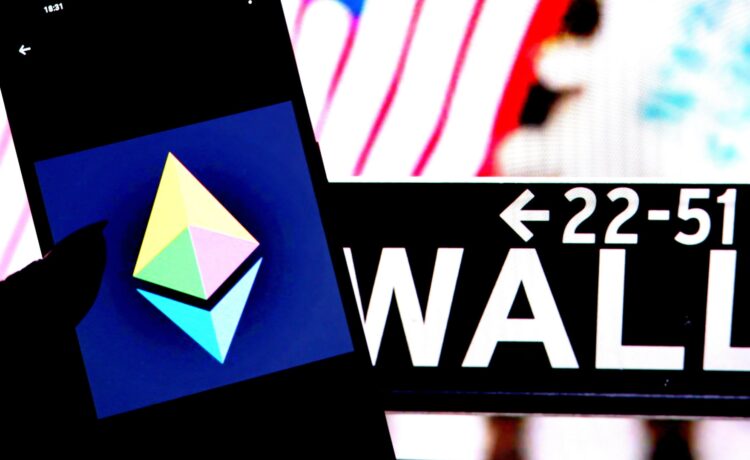Tuesday’s debut of exchange-traded funds that hold ether is widely seen as a significant event for the crypto industry, although it may not see the success or fanfare that bitcoin ETFs did earlier this year. “Part of the challenge for Ethereum is that the story isn’t as clear – it’s very clear with bitcoin: it’s digital gold,” Anthony Pompliano, CEO of Professional Capital Management, told CNBC’s ” Squawk Box .” “When you start talking about Ethereum, you start talking about a technology platform, there’s a lot more competition.” The total market for ether is also roughly one-fourth the size of the leading cryptocurrency. The ether ETFs come about six months after the launch of bitcoin ETFs , which saw some of the most successful debuts in the industry’s history. Combined, the funds have attracted more than $16 billion of net inflows, led by the iShares Bitcoin Trust (IBIT) , according to FactSet. “We’ve really got to see what these flows are going to look like because the story isn’t as clear,” Pompliano added. “You’re not going to get access to the staking, so the cash flow that people really like about a Ethereum isn’t available to these ETF holders, and I think that the flows itself are not going to be nearly as big as bitcoin [ETFs]. And so the question is how much impact on price is really going to have?” Mike Novogratz, CEO of Galaxy Digital, whose Invesco Galaxy Ethereum ETF (QETH) began trading Tuesday, agreed ether ETF flows could be small compared to bitcoin funds’. “We think it’ll be about 20% as many flows [that] will go into the ether ETF in the first six months that went into bitcoin [ETFs],” he said in a separate “Squawk Box” interview. He added that it’s a significant development for crypto nevertheless. “This is one more step in the total adoption of crypto as an asset class for institutions – ETFs make it easier for everyday Americans and institutions to participate in these ecosystems,” he said. —CNBC’s Jesse Pound contributed reporting.















